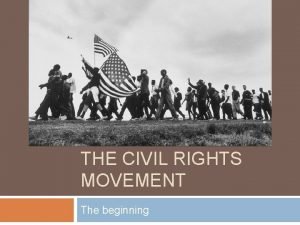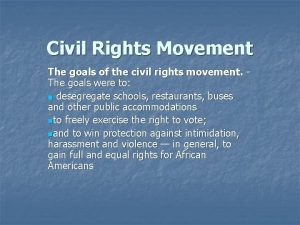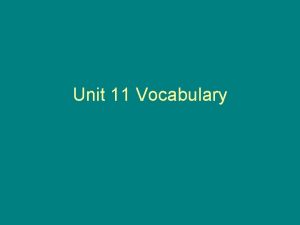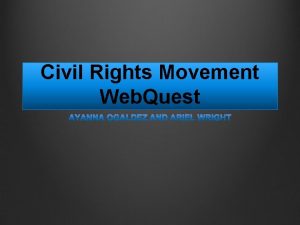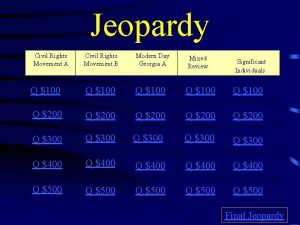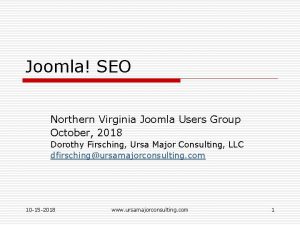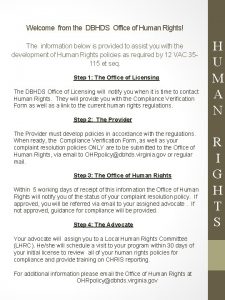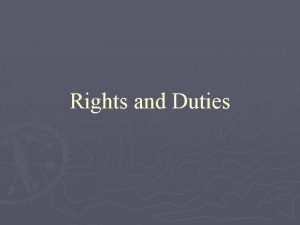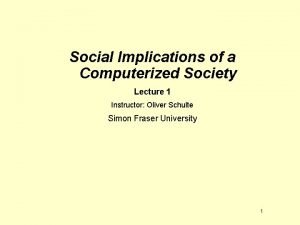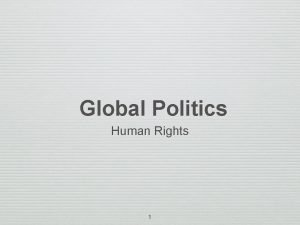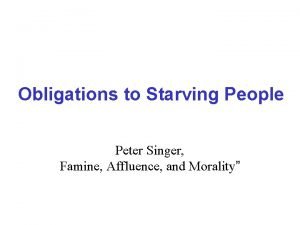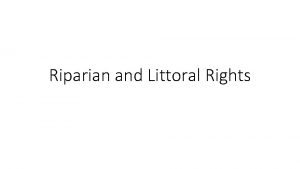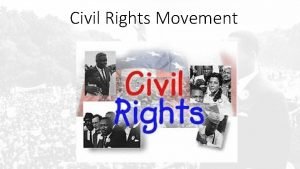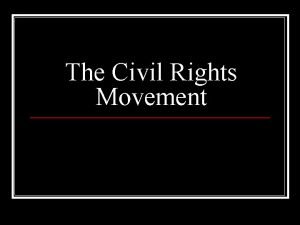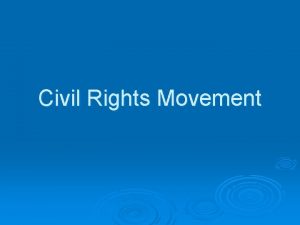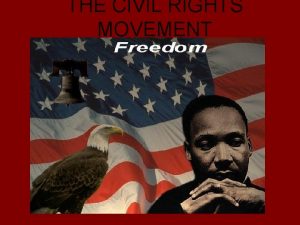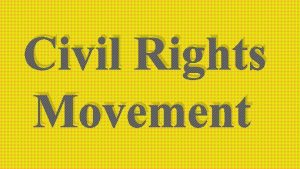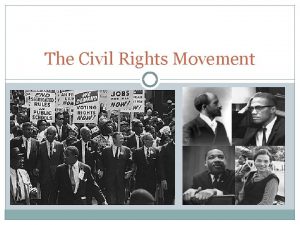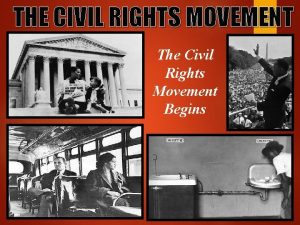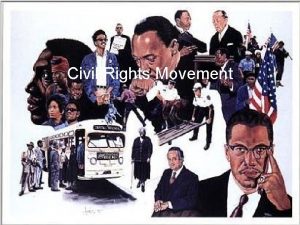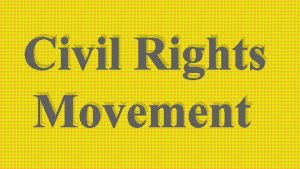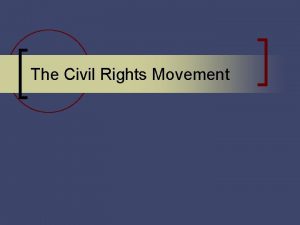The Civil Rights Movement in Virginia The Civil














- Slides: 14

The Civil Rights Movement in Virginia

The Civil Rights Movement in Virginia • Civil Rights – the privileges that you enjoy as a citizen. • These include rights such as voting and equal opportunity to get a job! • For African Americans of this time period (era), it also meant being able to sit anywhere you wanted to on a bus or being served in any restaurant!

The Civil Rights Movement in Virginia • During WW II, many African Americans fought for their country. • When the war was over, they returned home determined to obtain (get) their full civil rights.

The Civil Rights Movement in Virginia • This campaign for equal rights is called the Civil Rights Movement. • During the 20 th century (the 1900’s), Virginia struggled over the issue of civil rights.

Desegregation and Integration • Segregation - the separation of people, usually based on race or religion. • Desegregation – abolishment of racial segregation. • Integration – Full equality of all races in the use of public facilities.

Protests Against Segregation – Blacks Fight Back! • Boycott – to not buy something as a way of protest. • This is a picture of Rosa Parks – this led to a bus boycott!

Protests Against Segregation – African Americans Fight Back! • Sit-in – to protest something by sitting in a place and refusing to move.

The “Separate But Equal” Policy • The “separate but equal” policy tried to offer African Americans their own schools. • These schools would treat blacks “equally” but continue to be “separate” from whites.

Desegregation and Massive Resistance in Virginia • In the 1954 court case of Brown vs Board of Education, the U. S. Supreme Court ruled that “separate but equal” public schools were unconstitutional. (against the law)

Desegregation and Massive Resistance in Virginia • All public schools, including those in Virginia, were ordered to integrate. (desegregate) • That meant both blacks and whites would attend the same schools!

Desegregation and Massive Resistance in Virginia • Virginia’s government established a policy of Massive Resistance, which fought to “resist” the integration of public schools! • This meant that the Virginia state government did not want whites and blacks attending the same schools!

Desegregation and Massive Resistance in Virginia • Some schools were closed in order to avoid integration! • The policy of Massive Resistance failed, and Virginia’s public schools were integrated. (desegregated)

Harry F. Byrd, Sr. • Harry F. Byrd, Sr. led a Massive Resistance Movement against the integration (desegregation) of public schools.

Civil Rights Movement • As a result of the Civil Rights Movement, laws were passed that made racial discrimination illegal.
 Civil rights webquest
Civil rights webquest The civil rights movement
The civil rights movement Civil rights movement goal
Civil rights movement goal Civil rights movement essential questions
Civil rights movement essential questions Civil rights movement vocabulary
Civil rights movement vocabulary Mother of the modern day civil rights movement
Mother of the modern day civil rights movement Civil rights movement webquest
Civil rights movement webquest Civil rights movement jeopardy
Civil rights movement jeopardy Northern virginia seo audit
Northern virginia seo audit Dbhds office of licensing
Dbhds office of licensing Legal rights and moral rights
Legal rights and moral rights Positive rights vs negative rights
Positive rights vs negative rights Negative rights vs positive rights
Negative rights vs positive rights Positive vs negative rights
Positive vs negative rights What is littoral rights
What is littoral rights

